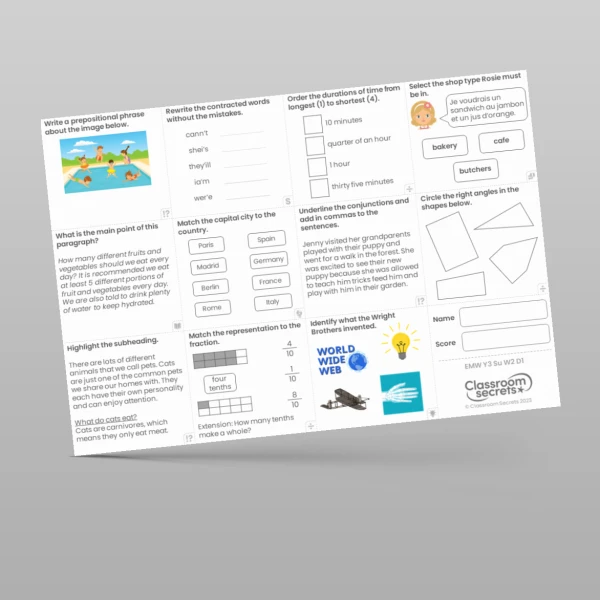

Support children in their understanding of adverbs with this Year 3 What is an Adverb? Varied Fluency worksheet. With four varied fluency questions, children can use these to identify where adverbs have been used in sentences and complete a sentence using an appropriate adverb.
These differentiated worksheets link closely with our Modelling PowerPoint and are suitable for individual use in class. They can also be used as a set of example questions for supported work in small groups or as part of an intervention.
Curriculum Objectives
- Develop their understanding of the concepts set out in English appendix 2 by: Using adverbs to express time and cause / Express time, place and cause using adverbs [for example, then, next, soon, therefore]
Tags
Word Classes
Spring
3G1.6
Year 3 Adverbs











